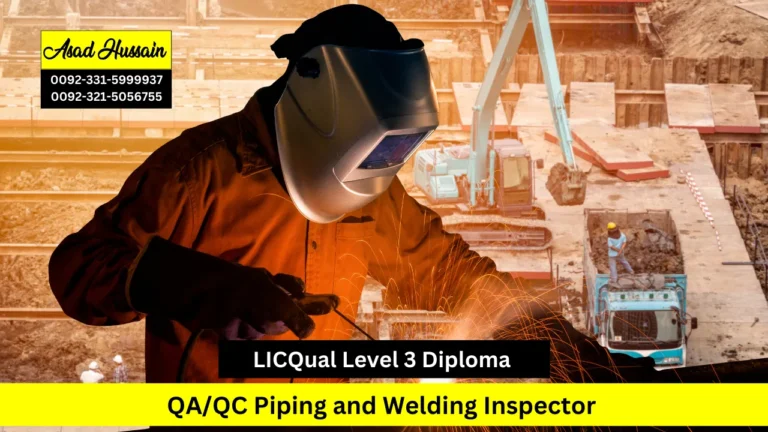In the ever-evolving field of civil engineering, the demand for skilled professionals who can manage and execute civil projects efficiently is on the rise. If you’re passionate about construction, infrastructure, and technology, the Level 3 Diploma in Civil Technology might be the perfect qualification for you. This diploma offers a robust foundation in civil technology and opens doors to various career opportunities in the civil engineering sector.
The Level 3 Diploma in Civil Technology is designed for those looking to develop a comprehensive understanding of civil engineering principles and practices. This qualification is ideal for individuals who wish to work in technical and managerial roles within the civil engineering field. The course covers essential aspects of civil technology, including design principles, construction methods, and project management.
The Level 3 Diploma in Civil Technology is an excellent choice for those looking to build a career in civil engineering. With its focus on practical skills, industry knowledge, and project management, this qualification provides a strong foundation for a successful career in the field. Whether you’re aiming to become a civil engineering technician, a site supervisor, or a project coordinator, this diploma can help you achieve your professional goals and make a significant impact in the world of civil engineering.
Program Highlights
Mandatory Units
- Advanced Structural Engineering
- Transportation Engineering
- Project Management in Construction
- Site Management and Supervision
- Specialization Modules
- Advanced CAD and Software Applications
- Sustainable Construction Practices
- Ethics and Professionalism in Civil Technology
- Career Development Workshops
- Emerging Technologies in Civil Engineering
Educational Background: Typically, participants should have a high school diploma or its equivalent (such as a GED). Some programs may require a minimum level of education, such as completion of secondary education, to ensure participants have basic academic skills.
Language Proficiency: Proficiency in the language of instruction (usually English) is essential to comprehend complex course materials, actively participate in discussions, and complete written assignments.
Age Requirement: Participants must be at least 18 years of age to enroll in this course.
Industry Experience: While not always required, some programs may prefer or recommend that participants have some prior industry experience related to the field they intend to study. This can provide valuable context for understanding quality control principles.
Level 2 CT Diploma (Recommended): While not mandatory, completion of a Level 2 Civil Technology Diploma or equivalent foundational training is highly recommended.
Advanced Structural Engineering
- Understand and apply advanced principles of structural analysis and design.
- Analyze complex structures using various engineering techniques and software.
- Evaluate the performance and safety of advanced structural systems under different loading conditions.
- Design and implement structural solutions for complex engineering problems, considering factors like material properties and load distribution.
Transportation Engineering
- Gain a comprehensive understanding of transportation systems, including road, rail, and air transport.
- Design and analyze transportation infrastructure, such as highways, bridges, and airports.
- Evaluate transportation planning and traffic management strategies to improve efficiency and safety.
- Understand the impact of transportation systems on the environment and urban development.
Project Management in Construction
- Apply project management principles and techniques to plan, execute, and oversee construction projects.
- Develop project plans, including timelines, budgets, and resource allocation.
- Manage project risks, quality, and changes to ensure successful project delivery.
- Utilize project management software and tools to track progress and communicate with stakeholders.
Site Management and Supervision
- Understand site management practices and supervisory roles in construction projects.
- Ensure compliance with construction plans, specifications, and safety regulations.
- Coordinate and supervise construction activities, including labor, equipment, and materials.
- Resolve issues and conflicts on site to maintain project efficiency and quality.
Specialization Modules
- Explore specialized areas within civil technology based on individual interests and career goals.
- Develop advanced knowledge and skills in specific civil engineering fields, such as geotechnical engineering, water resources, or structural health monitoring.
- Apply specialized techniques and methods to address complex engineering challenges.
Advanced CAD and Software Applications
- Utilize advanced Computer-Aided Design (CAD) software for creating and modifying engineering drawings and models.
- Implement software applications for structural analysis, project management, and construction planning.
- Understand the integration of CAD systems with other engineering software to enhance project accuracy and efficiency.
- Develop skills in 3D modeling and visualization to support design and communication processes.
Sustainable Construction Practices
- Understand principles and practices of sustainable construction, including energy efficiency, material selection, and waste reduction.
- Design and implement construction projects that minimize environmental impact and promote sustainability.
- Evaluate the life cycle of building materials and construction methods to ensure long-term sustainability.
- Incorporate renewable energy solutions and green building standards into construction projects.
Ethics and Professionalism in Civil Technology
- Understand ethical principles and professional standards in civil engineering and construction.
- Apply ethical decision-making processes in professional practice and project management.
- Develop effective communication and teamwork skills to maintain professionalism in the workplace.
- Address ethical dilemmas and regulatory compliance issues in civil technology projects.
Career Development Workshops
- Develop a professional resume, cover letter, and job application materials tailored to the civil engineering industry.
- Enhance interview skills and job search strategies to successfully secure employment in the civil technology field.
- Explore career pathways and professional development opportunities within civil engineering and construction.
- Build a professional network and understand industry expectations and trends.
10. Emerging Technologies in Civil Engineering
- Identify and evaluate emerging technologies and innovations in the field of civil engineering.
- Understand the application of technologies such as Building Information Modeling (BIM), drones, and smart materials in civil projects.
- Assess the impact of new technologies on project efficiency, design, and construction practices.
- Stay updated with advancements and trends in civil engineering technology to maintain a competitive edge in the industry.
The Level 3 Diploma in Civil Technology is designed for individuals aspiring to build a solid foundation in civil engineering and construction management. It is ideal for those who have a keen interest in structural design, transportation systems, and sustainable building practices. This course is particularly suited for those looking to enter the civil engineering field as technicians, site supervisors, or project coordinators. It also benefits those currently working in the industry who wish to enhance their skills and knowledge. Whether you’re a recent school leaver, a career changer, or someone seeking professional advancement, this diploma offers the essential skills and qualifications needed to excel in various technical and managerial roles within civil technology.







